Every year, people, including families with small children, come to the U.S. seeking safety from violence and persecution. The U.S. is bound by both international and domestic laws — born out of the tragedies of World War II — to allow those with a “well-founded fear of persecution” on account of race, religion, nationality, political opinion, or membership in a particular social group to apply for asylum. Yet over the last several decades, multiple administrations, guided by political rather than humanitarian considerations, have turned their backs on people fleeing persecution. As a result, countless refugees have been forced to remain outside the U.S. or returned to their countries of origin only to be abducted, tortured, and even killed.
The ACLU has been at the forefront of the fight to defend asylum every step of the way — and we will never back down. Here’s a look at how we’ve shown up to protect this critical right over the years.
1948
In the aftermath of the Holocaust, dozens of nations commit to never again slam the door on people in need of protection, enshrining the right to seek asylum in the 1948 Universal Declaration of Human Rights and then again in the Refugee Convention of 1951 and its 1967 Protocol, which the U.S. ratifies.
1980
Congress passes the Refugee Act of 1980, bringing the U.S. into conformity with the Refugee Convention of 1951, and ensuring people who are fleeing persecution on “account of race, religion, nationality, membership in a particular social group, or political opinion” are not sent back to places where they risk persecution.
1987
The ACLU Immigrants’ Rights Project is founded under the leadership of Lucas Guttentag with a mission to protect the rights of immigrants.
1989
The ACLU joins several religious and civil rights organizations in a class action lawsuit challenging the Reagan administration’s discriminatory denial of 97 percent and 99 percent, respectively, of asylum applications from people from El Salvador and Guatemala, where civil wars involving U.S.-funded militaries were raging. Eventually, the government agreed to give new asylum hearings to 240,000 Salvadorans and Guatemalans.
1992
The ACLU Joins the Center for Constitutional Rights and Yale Law Students in challenging the detention of Haitian asylum seekers living with HIV at a detention camp at Guantánamo, eventually winning their release and closure of the camp.
1997
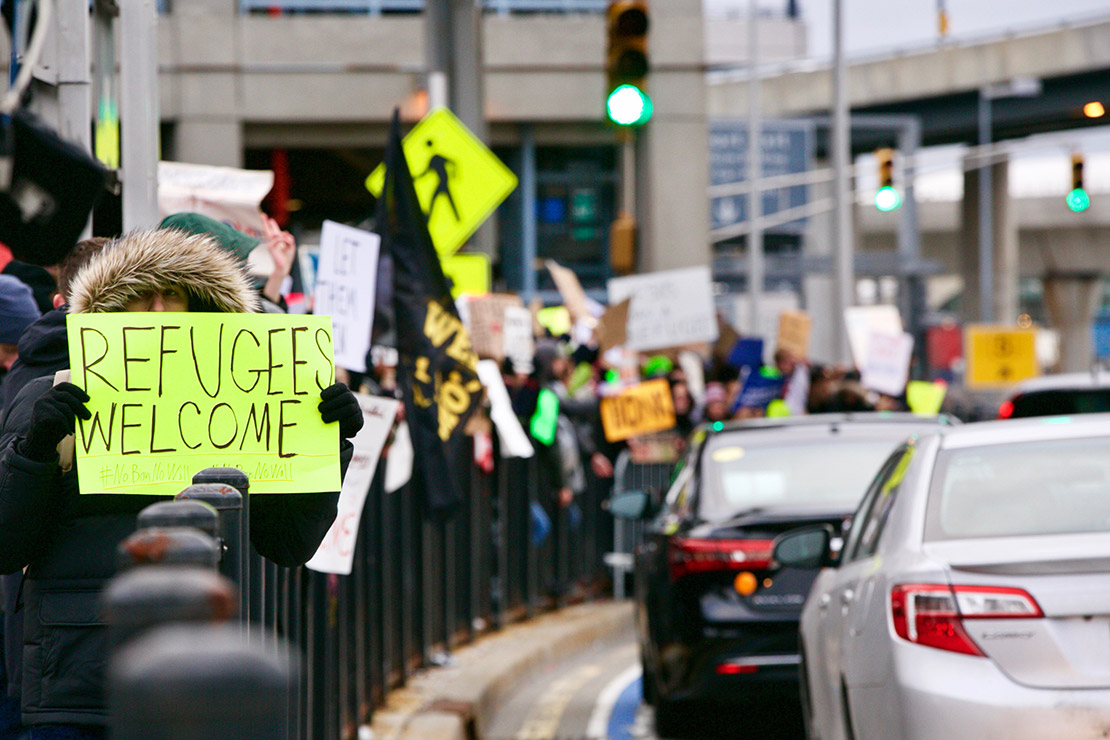
Credit: ACLU
The U.S. implements an “expedited removal” system that operates in virtually complete secrecy and short-circuits due process for people seeking asylum. Low-level Immigration and Naturalization Service (INS) inspectors have authority to deny entry to people seeking refuge based on an on-the-spot determination. The ACLU — leading a coalition of civil rights organizations, refugee groups, and pro bono law firms — organizes a legal challenge to the expedited removal system.
2001
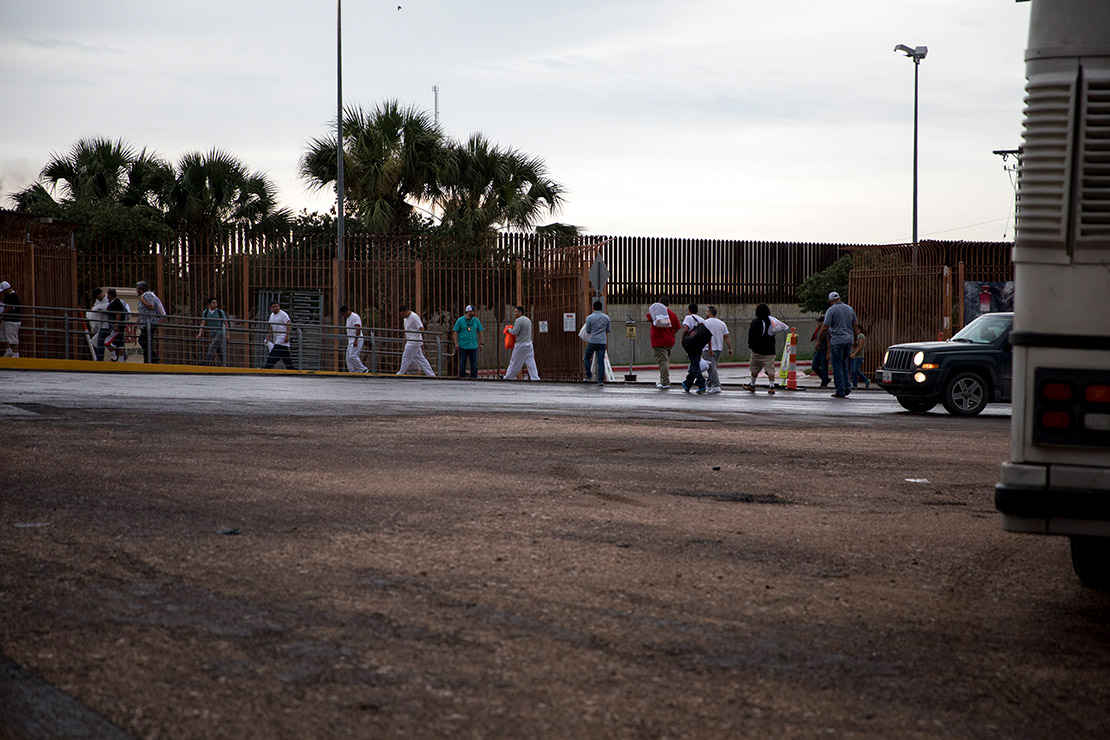
Credit: Ilana Panich-Linsman
Expedited removals are expanded and news stories emerge of asylum seekers with well-founded fears of persecution being returned to danger. The ACLU supports bipartisan legislation intended to stop improper removals. Though the legislation never passed, the ACLU continues to document the harms of expedited removals.
2006
The 9th U.S. Circuit Court of Appeals orders the immediate release of a Sri Lankan asylum seeker, Ahilan Nadarajah, who had been detained for five years, as a result of a lawsuit brought by the ACLU of Southern California.
2009
The Ninth Circuit upholds an injunction ordering the government to provide bond hearings to asylum seekers detained for six months or more, after the ACLU files a class action lawsuit, Rodriguez v. Hayes, challenging prolonged detention of asylum seekers without a bond hearing.
2014 & 2015
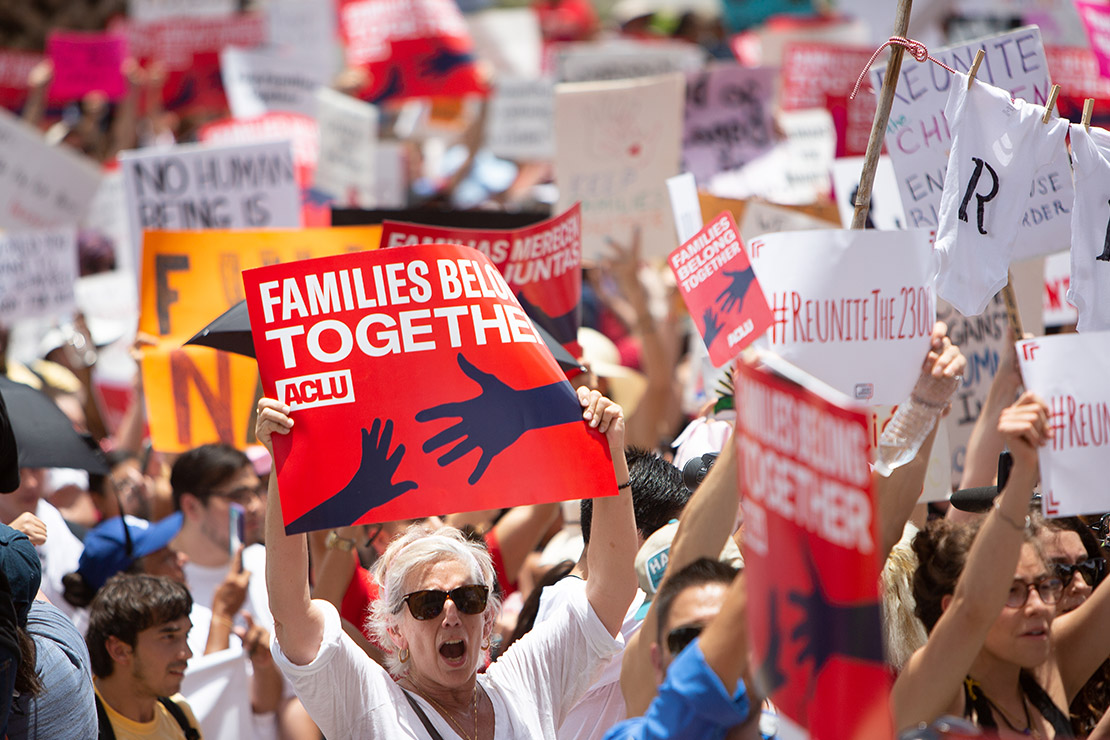
Credit: Julia Robinson
The ACLU files two lawsuits challenging the Obama administration’s policy of locking up asylum-seeking mothers and children in Texas and New Mexico in order to intimidate and deter others from coming to the United States.
February 26, 2018
The ACLU files a lawsuit challenging the Trump administration’s family separation policy. The lawsuit, expanded to a class-action in March, was filed on behalf of an asylum-seeking Congolese mother who was separated from her 7-year-old daughter, one of thousands who suffered needless cruelty under a policy intentionally designed to separate children from their parents.
March 15, 2018
The ACLU and partners file a lawsuit challenging the Trump administration’s arbitrary detention of asylum seekers fleeing persecution, torture, or death in their countries of origin. Shortly after, a federal court blocks the arbitrary detention of asylum seekers and orders a case-by-case review of whether each asylum seeker in the class-action lawsuit should be released on humanitarian parole.
June 26, 2018
A federal judge orders the reunification of thousands of separated parents and children after the ACLU pursued a preliminary injunction to halt the Trump administration’s inhumane practice of separating asylum-seeking families.
August 7, 2018
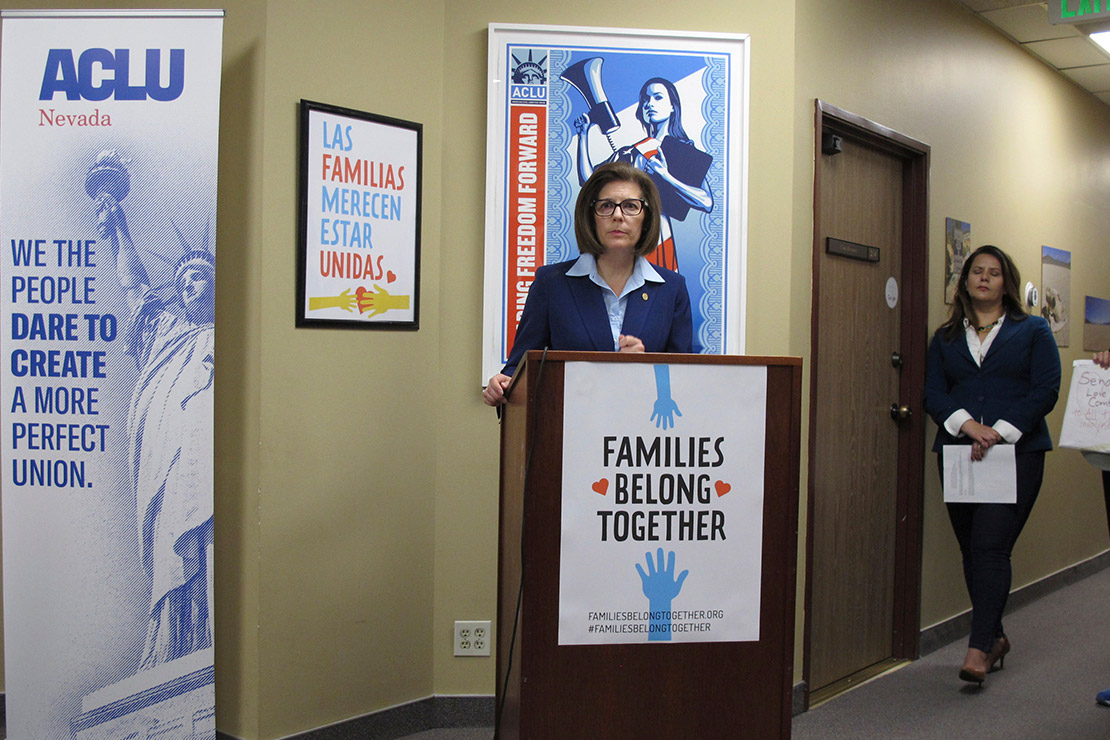
Credit: AP Photo/Scott Sonner
The ACLU and other groups file a lawsuit challenging the Trump administration’s rollback of protections for those seeking asylum from domestic violence and gang brutality.
November 9, 2018
A federal judge blocks a Trump asylum ban that illegally denied people who entered between ports of entry the opportunity to seek asylum, in response to a lawsuit brought by the ACLU, the Southern Poverty Law Center, and the Center for Constitutional Rights.
February 14, 2019
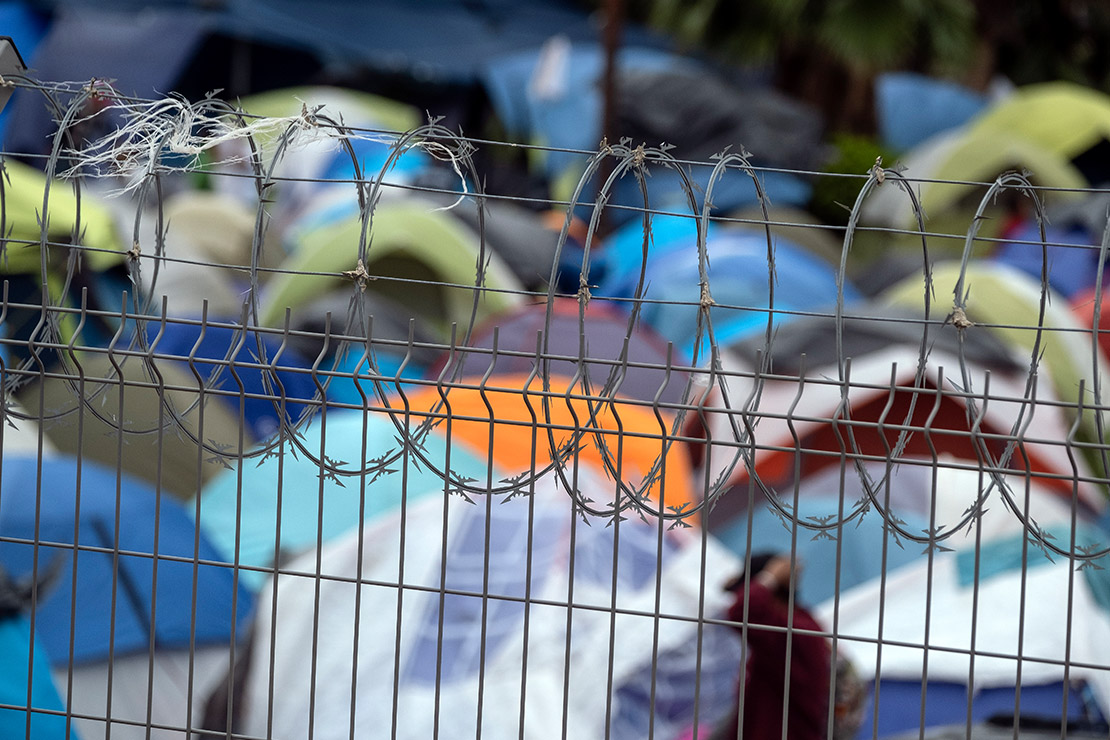
Credit: Guillermo Arias
The ACLU and other groups file a lawsuit challenging the Trump administration’s implementation of the Migrant Protection Protocols, more commonly known as “Remain in Mexico,” a policy that forces asylum seekers to remain at risk in Mexico while their cases are considered in the U.S.
July 16, 2019
The ACLU and other groups file a lawsuit against and help to successfully block the Trump administration’s “transit ban” that bars migrants who passed through other countries en route to the U.S. and did not request asylum there first.
November 14, 2019
The ACLU of Texas and ACLU Border Rights Center file a complaint with the Office of Inspector General of the Department of Homeland Security demanding that they investigate and put an end to “metering,” under which Customs and Border Protection officers turn back asylum seekers at ports of entry by arbitrarily limiting the number of asylum cases they will consider each day.
June 9, 2020
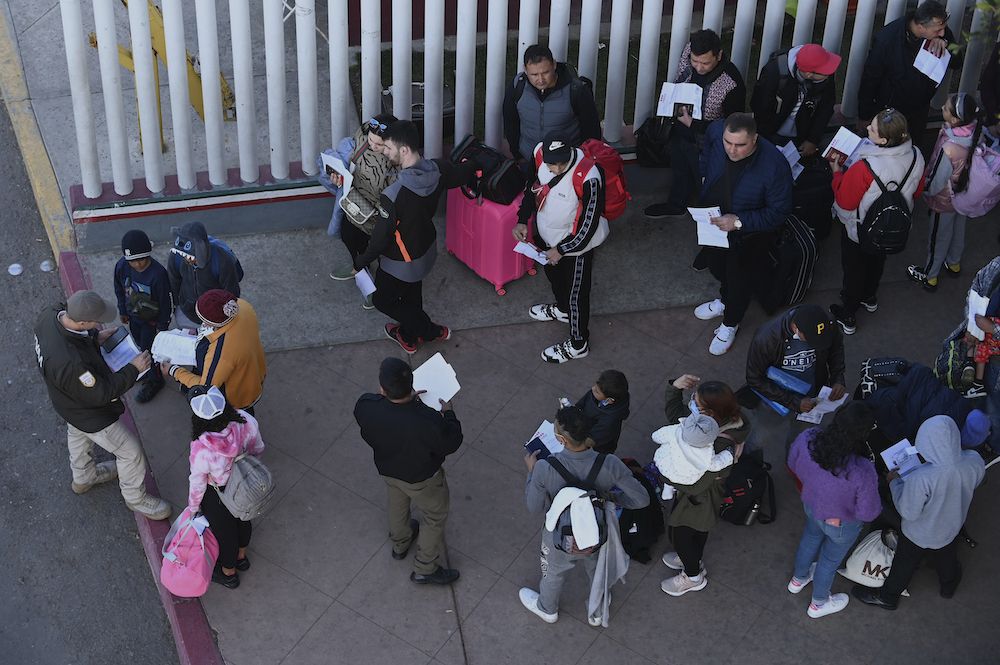
Credit: Carlos Moreno/Sipa USA via AP Images
The ACLU, the ACLU of Texas, and legal partners file a lawsuit seeking an immediate halt to the Title 42 expulsion policy, which illegally restricts immigration at the border based on an unprecedented and unlawful invocation of the Public Health Service Act.
August 5, 2021
The American Civil Liberties Union and the ACLU of Texas file a lawsuit against Texas Gov. Greg Abbott over an executive order that bars the transportation of certain migrants in the state, including asylum seekers trying to make their way from the border to networks of care elsewhere in the U.S.
March 4, 2022
Following a lawsuit from the ACLU and other groups, a federal appeals court orders the government to stop expelling families under Title 42. The Supreme Court later allows the expulsions to go on while litigation proceeds. The ACLU continues to fight against Title 42 in the courts and to push back against Congressional efforts to codify it.
April 1, 2022
The CDC terminates its Title 42 order, finding that the expulsion policy no longer serves a public health necessity. The decision follows weeks of pressure by the ACLU and other groups calling on the CDC to exercise its independent judgment free of political interference. A coalition of Republican led states challenges the CDC’s decision and succeeds in keeping the order in effect longer.
December 13, 2022
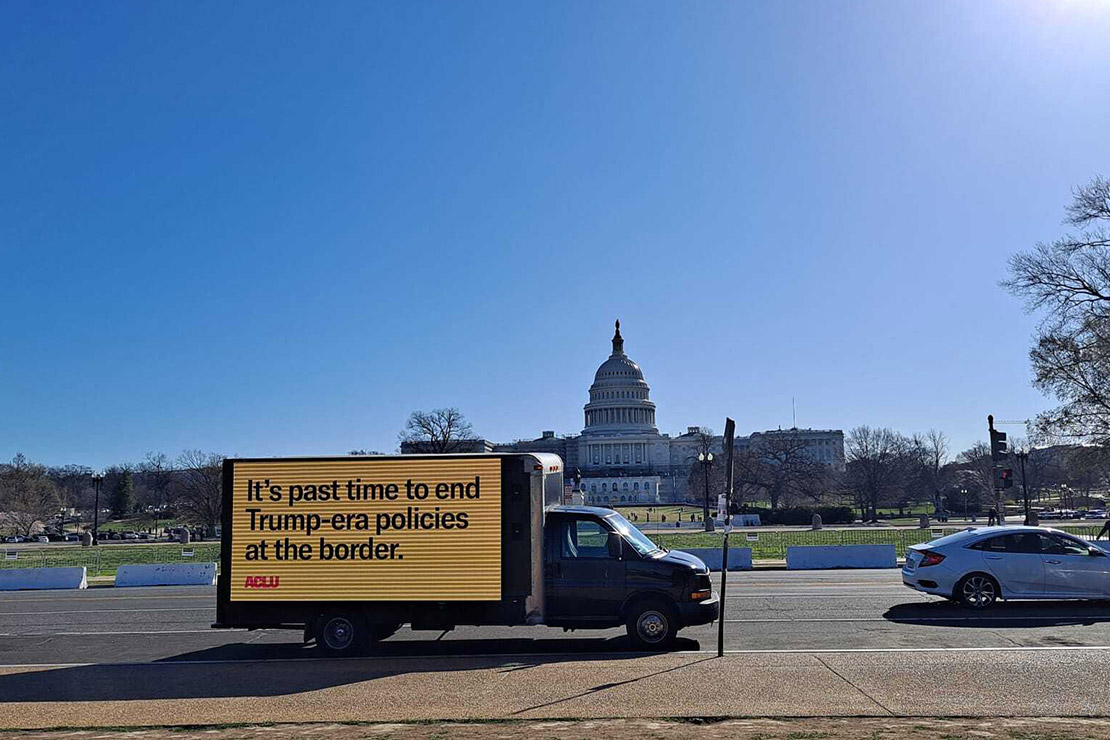
Credit: Blueline Media
Reports emerge that the Biden administration is considering replacing Title 42 with a new asylum ban, taken straight from Trump’s playbook, that would bar asylum for vulnerable migrants fleeing danger who did not apply for asylum in another country before reaching the U.S. The ACLU swiftly condemns the measure and promises to sue if the administration moves forward with the ban.
February 23, 2023
The Biden administration formally introduces the new asylum ban for public comment. The ACLU issues a condemnation of the illegal policy, saying it will cause “immense, avoidable suffering,” and encourages the administration to reverse course.
March 16, 2023
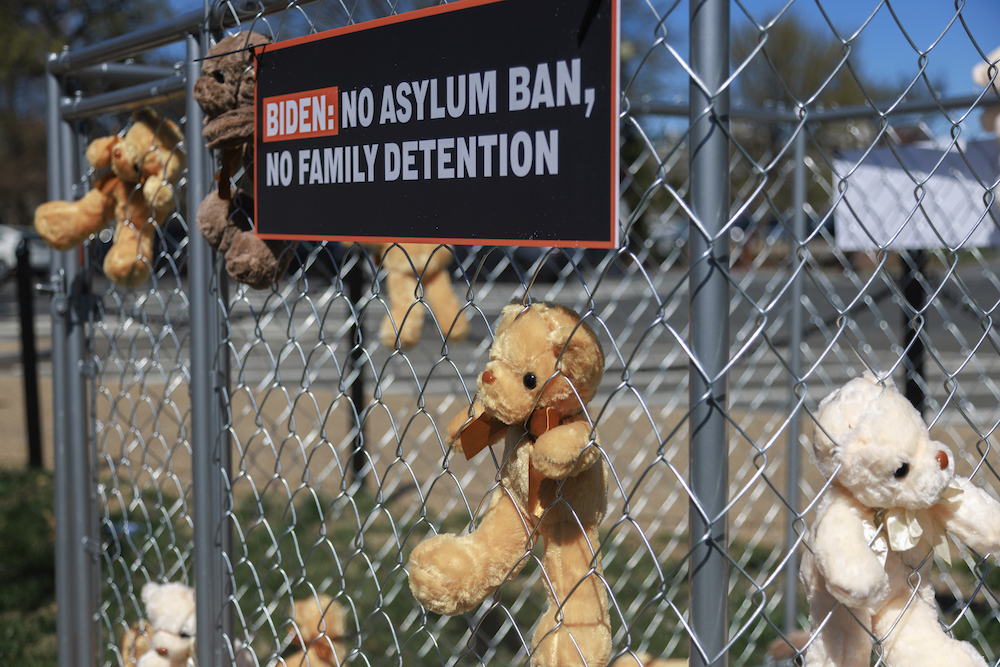
Credit: Photo by Bryan Olin Dozier/NurPhoto via AP
The ACLU and partners rally in D.C. to denounce the asylum ban, as well as reports that the Biden administration is considering bringing back the practice of family detention.
Today
Through litigation, public advocacy, and mobilization, we continue to fight for the right of people fleeing persecution to seek asylum in the U.S., showing up with our affiliates, allies, members, and supporters in the courts, the streets, and in the halls of power to protect this crucial right.
Published May 5, 2023 at 11:28AM
via ACLU (https://ift.tt/PuWOQSc) via ACLU
